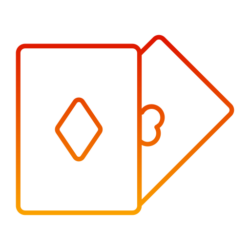The flop is the first three community cards that are dealt in a poker hand after the pre-flop betting round. It’s at this point that the game really begins, and understanding how to play it well is key to becoming a winning player. This article will cover a number of topics related to the flop, including how to categorize it and what decisions you should make based on your own hand strength as well as your opponent’s. It will also look at some tips for improving your post-flop strategy.
A poker hand with two of the same suit. It is considered a strong hand, but only if it isn’t a straight or flush. If your opponent has a better combination than you, it’s best to fold before the turn and river.
After the pre-flop betting round is completed and all players either call around to the big blind, raise or fold their chips, a new set of cards are dealt to the table called the “flop.” The dealer burns one card before placing the next card face up on the table. Players that still have chips in the hand then begin another betting round.
The flop is when the game of poker really starts to get serious, and this is where you’ll start to gain information about your opponents’ ranges and what types of hands they are likely holding. This knowledge can help you decide whether to continue pursuing your strong pre-flop hand or to fold. It can also help you to determine how much to raise after the flop, as you’ll be able to gauge how likely it is that your opponent has a better hand than you.
When you have a strong starting hand, you want to bet confidently on the flop. This will put pressure on your opponents, and it will likely cause them to fold if they have a worse hand than you. However, if you have nothing on the flop, you should bet cautiously. If you raise too often, your opponent will know that you’re bluffing and won’t call your bets next time.
A bet made by the player who took the lead in betting before the flop in Texas hold’em and Omaha hold’em (but not no-limit hold’em). Also known as a probe bet.
A method of evaluating low poker hands by assigning a monetary value to each one based on its chance of winning in a push/fold situation. The process is used to calculate the expected value of a poker hand and to determine how many chips a player should risk in tournaments or sit-n-gos. See also ICM.
